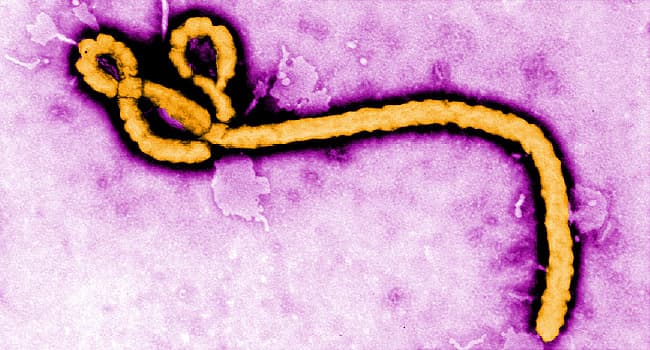
Audio By Carbonatix
The World Health Organisation (WHO) has deployed a team of health experts to Uganda to support the country's response to a confirmed outbreak of Sudan virus disease, a viral illness similar to Ebola.
Uganda has reported its first confirmed case of Sudan virus disease: a nurse from Mulago National Referral Hospital in Kampala.
No other health workers or patients are showing symptoms. 45 contacts, including health workers and family members, are under close monitoring. The urban location of the case necessitates a rapid and intense response.
To accelerate early response, WHO has allocated $1 million from its Contingency Fund for Emergencies. The funding will facilitate the rapid deployment of medical supplies, including personal protective equipment (PPE), from WHO's Emergency Response Hub in Nairobi.
Although there are no licensed vaccines available for Sudan virus disease, WHO is working closely with developers to deploy candidate vaccines as an additional public health measure.
These vaccines will be rolled out once all necessary administrative and regulatory approvals are obtained.
WHO Regional Director for Africa, Dr Matshidiso Moeti stated that a comprehensive response is being established, and the organisation is supporting the government and partners to scale up measures to quickly identify cases, isolate and provide care, curb the spread of the virus and protect the population.
“Uganda’s robust expertise in responding to public health emergencies will be crucial in ending this outbreak effectively,” he said.
There have been eight previous outbreaks of the Sudan virus disease, with five occurring in Uganda and three in Sudan. Uganda last reported an outbreak of Sudan virus disease in 2022.
“Banking on the existing expertise, we are accelerating all efforts, including expertise, resources and tools to save lives and bring the outbreak to a halt swiftly,” said Dr Kasonde Mwinga, WHO Representative in Uganda.
Sudan virus disease is a deadly viral illness that affects humans and primates, caused by the Sudan virus, a close relative of the Ebola virus.
Historical outbreaks of Sudan virus disease have reported mortality rates ranging from 41% to 100%. Currently, there are no licensed treatments or vaccines available.
However, providing supportive care early on has been proven to substantially decrease the number of fatalities.
Latest Stories
-
Portugal had over 40 staff in Qatar 2022 – GFA justifies expanded Black Stars Technical team
15 minutes -
NHIA donates GH¢800k to Ghana Medical Trust Fund to support NCD patients
27 minutes -
NDC begins nationwide membership registration today with new party register
36 minutes -
NDC’s Ayawaso East vote-buying probe committee set to submit findings today
42 minutes -
Ghana Medical Trust Fund assesses regional hospitals ahead of NCD care rollout
49 minutes -
Offinso MP blames Mahama gov’t for cocoa sector challenges
1 hour -
Baba Jamal’s recall not targeted, decision based on allegations – Kwakye Ofosu
1 hour -
Ayawaso Zongo chiefs caution NDC against cancelling Ayawaso East primary
1 hour -
COCOBOD failed to deliver over 330k tonnes of cocoa in 2023/24 season – Randy Abbey
1 hour -
Baba Jamal denies vote-buying claims, cooperates with NDC probe into Ayawaso East primary
1 hour -
COCOBOD in its most fragile state in nearly eight decades — CEO Randy Abbey
1 hour -
The dichotomy of living with mental and chronic illnesses
1 hour -
Offinso MP urges COCOBOD to be frank with farmers over cocoa sector challenges
2 hours -
Ghana shifts debt strategy towards multilateral, bilateral funding in 2025
2 hours -
Projects with extractive-sector funding: Civil society groups raise alarm
2 hours

